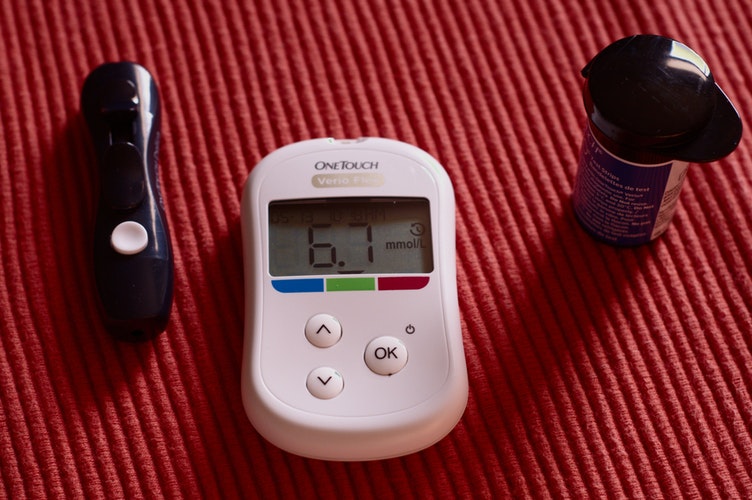Summer is coming to an end and the days are getting shorter, which means we all want to feel as energized as possible as we wake up. When it comes to getting out of bed fresh, happy, and ready to tackle the world, there are a bunch of tricks to try. Start your morning feeling more rejuvenated with these tips.
Maximize your beauty sleep

No screen time before bed
With advances in technology over the last decade or so, it’s common practice that in the hour before bedtime, you’re likely to check your phone, write a late night email, or watch your favourite show on Netflix. BUT! Studies have shown that excessive screen time can make it difficult to relax. Instead, try turning off your phone an hour or two before bed. Opt for a good ol’ paperback to read instead of using your tablet, or even try for a sleeping mask to completely block out any light source.
Create a comfortable space
Avoid using your bedroom for day-to-day activities and turn it exclusively into a sleep haven. This may involve investing in black-out or dark curtains for your windows, adjusting the thermostat to reach the perfect temperature (not too hot, not too cold), or even buying a new pillow that meets your comfort needs. If you have noisy neighbours, live near a busy street, or share the bed with a snoring partner or pet, make your space as quiet as you can by using earplugs at night. At first this may seem excessive–but just remember how good it feels when you wake up after a soundless, restful slumber.
Get a good night’s sleep
How you wake up in the morning is affected by how you fall asleep at night. A regimented schedule is a great place to start, but with busy lives and spontaneous occurrences, it’s nearly impossible to keep a completely consistent schedule at all times. If you occasionally have difficulties falling asleep, try diffusing an essential oil such as lavender (well-known for its sleep-inducing properties), or another relaxing oil. Alternatively, a small dose of natural melatonin can also be helpful to nudge you to sleep without any groggy side effects the next morning.
Develop a morning routine

Avoid hitting the ‘snooze’ button
Hitting the “snooze” button in the morning is a habit most people have developed at some point in their lives. It can be too easy to put off getting out of bed with a simple smack of the button. Wearing a Fitbit or similar device will closely track your sleep schedule (so you can see the times you have uninterrupted, REM sleep), and it can also provide a gentler, built-in alarm that wakes you up gradually. Another method that is less enticing, but very effective, is to set your alarm clock across the room, so no matter what, you can’t simply turn over and “snooze,” but have to get out of bed to silence it. And if you’re already up–what’s the point of going back to sleep?
Open the blinds
Like we mentioned above, because the presence of light simulates daylight (and alertness), when you’re falling asleep, it’s best to avoid it. On the other hand, if you’re having trouble waking up in the morning, simply flood your space with natural light; open the blinds, crack open a window for fresh air, and bask in the morning sunshine. We all know the feeling of feeling lethargic whenever the weather is dull or rainy–so when this is the case, switch out your regular light bulbs for some power-saving and daylight-duping LED bulbs around the house.
Create an upbeat playlist
When it comes to getting ready in the morning, some people prefer listening to the news on TV, early morning radio programs, podcasts, or the new album from their favourite band. Whatever it is, as long as it elevates your mood and helps you feel energized, prepare your sound of choice the night before. Create a playlist that speaks to you, and choose something that gets you excited in the morning and pumped for your day. Sync your phone up with a hands-free speaker to switch from the traffic report to your ‘90s playlist effortlessly while you turn on the coffee maker and pack your lunch.
Nourish your body and mind

Drink water
For many people, the idea of mornings without caffeine may seem impossible to bear. The truth is, though your routine cup of coffee or tea may be non-negotiable, make sure your habit doesn’t become an addiction. To supplement the benefits of caffeine, always keep a tall glass or bottle of water next to your bed so you can grab it and gulp immediately upon waking. Water rehydrates the body after hours without it, it will de-fog your brain and amp up your alertness, and it can help stimulate your metabolism for the rest of the day. Just incorporating one glass of water every morning (before your coffee) will pay dividends for your focus and liveliness.
Eat a healthy breakfast
Your first meal is what keeps your brain sharp and provides your body with energy until lunchtime. If the idea of eating something heavy right upon waking makes you nauseous–don’t worry. You don’t need to eat a whole plate of eggs and bacon every day for energy. Instead, you can make quick, simple smoothies to take with you on the go. If you’re pressed for time, prepare overnight oats the day before, or dive into a bowl of muesli. Though scientific communities are divided about the importance of breakfast, as long as you feel satiated and energized, you won’t have to worry about any uncomfortable cravings before your next meal.
Exercise
For some people, getting to a yoga or spin class, or even a 30-minute jog in the morning is difficult; especially if you have a busy family, career, or unpredictable schedule. But taking just a small amount of time out of your morning for exercise can have lasting benefits. Not only will you not have to bother hitting the gym after an 8-hour work day, but the endorphins stimulated during your workout will get you revved and happy in the morning. If you’re the type of person who exercises to relax and unwind, you should definitely move this activity to the morning–that way, when you head to work, your mind (and body) will be fully refreshed. If time really isn’t on your side, pop in a morning yoga DVD that you can do in your bedroom or consider an active commute–getting your heart rate up and blood flowing will set a solid foundation for the rest of your day.
Take time for yourself
Finally, be sure to take time for yourself in the morning. Whenever you have just a moment or an hour, do something that makes you content and peaceful before diving back into the real world. Meditation is a fantastic way to embrace every day as a clean slate, where you can create positive energy by appreciating the little moments in life. If meditating isn’t your jam, try journaling, reading, or simply sitting in your pajamas with your tea or coffee (and glass of water!).
Whatever you do to start your morning, find what makes you the happiest, get a good night’s sleep, and prepare your day feeling your best.
















 Do: Nothing
Do: Nothing

